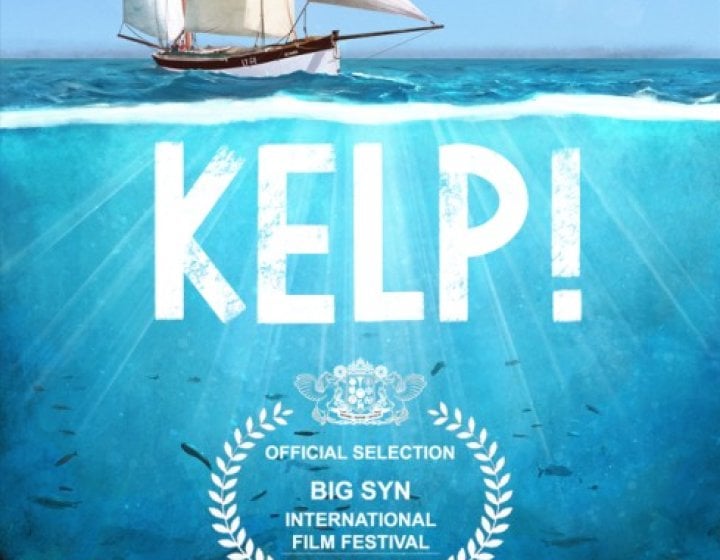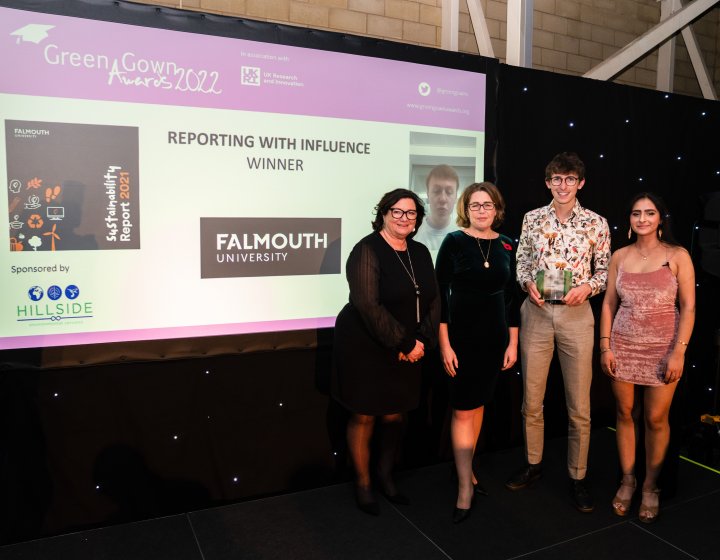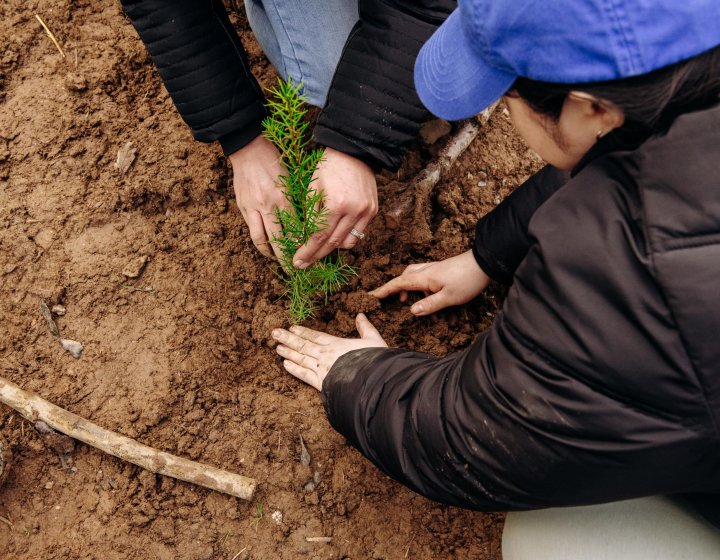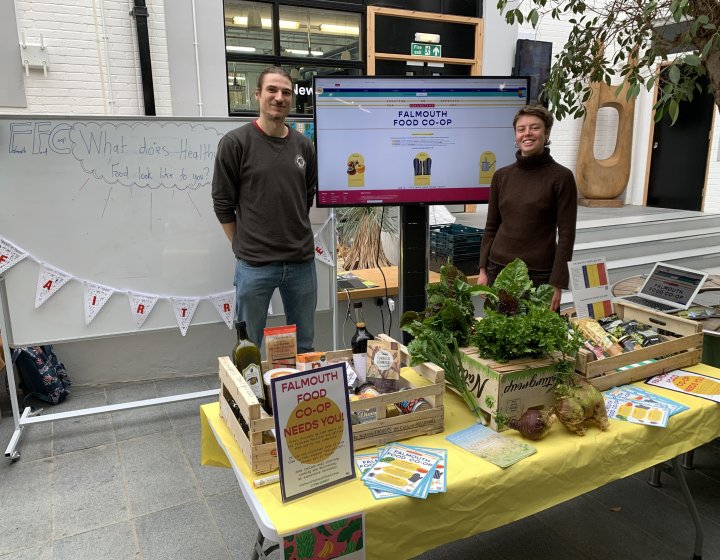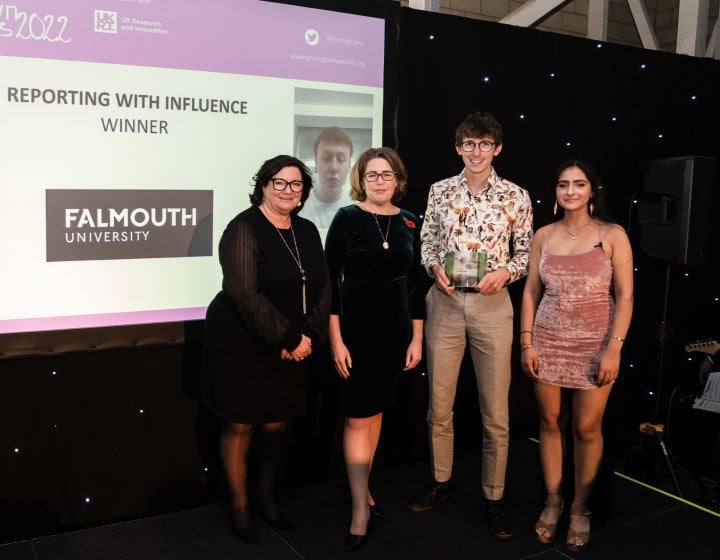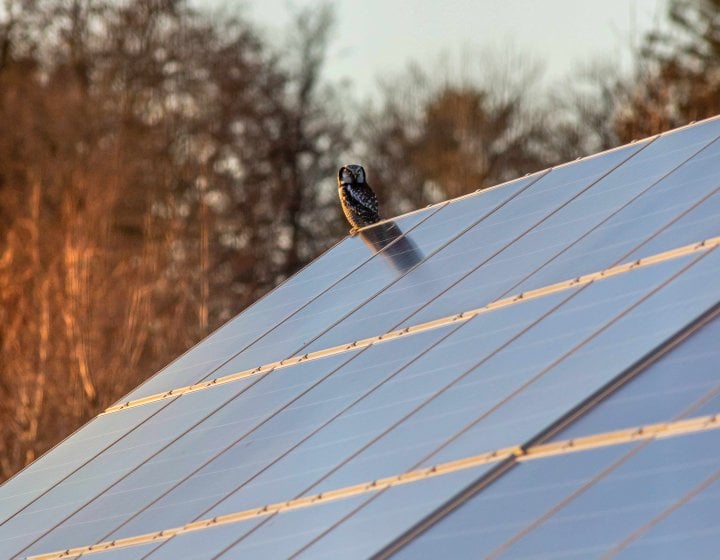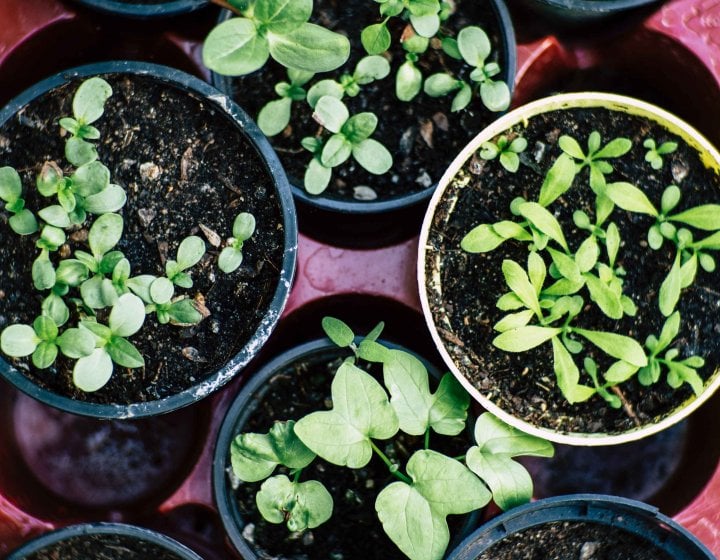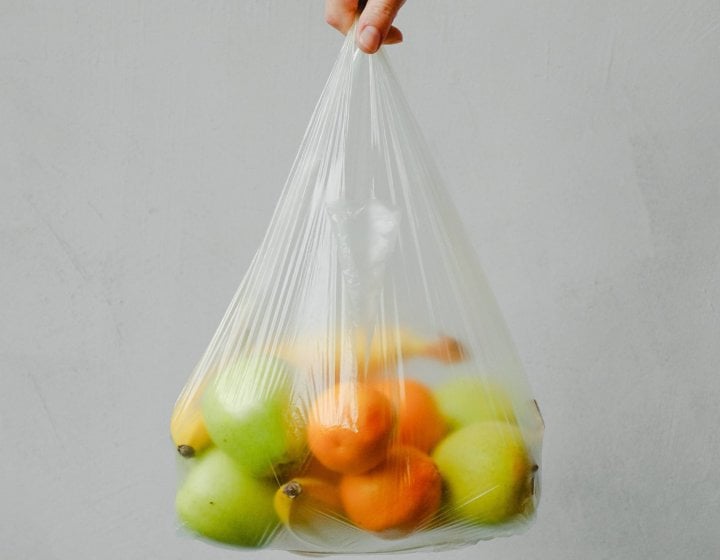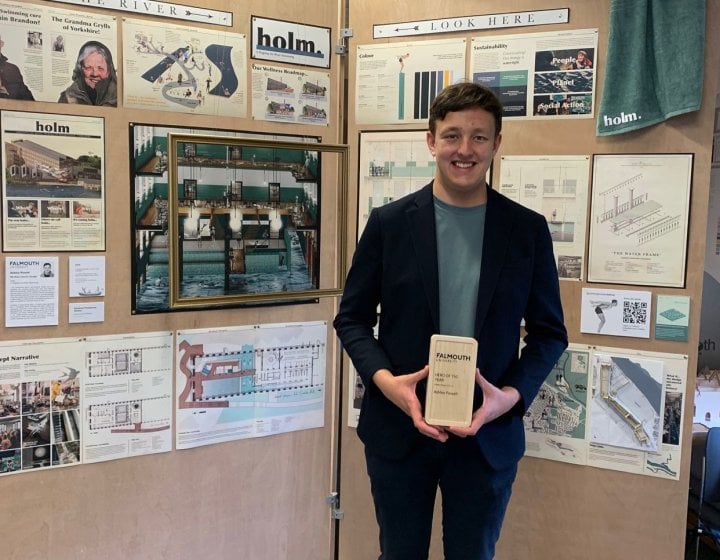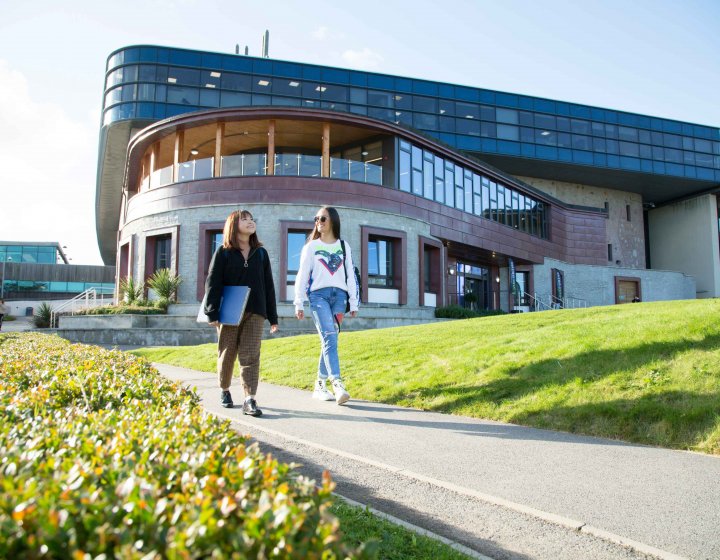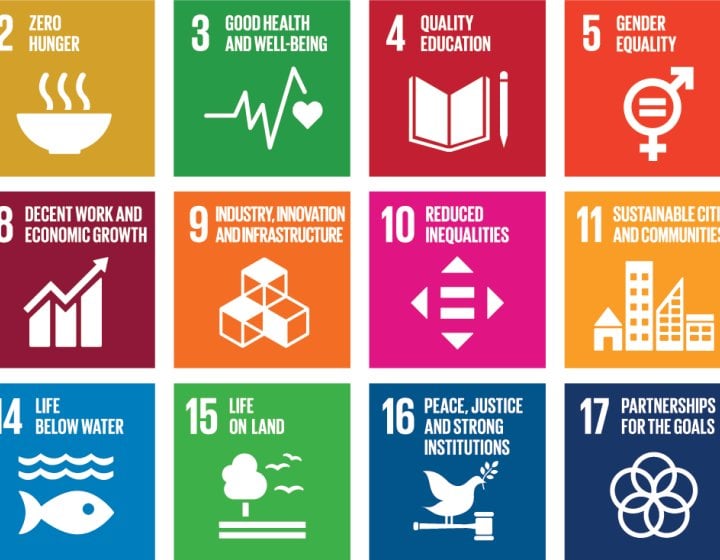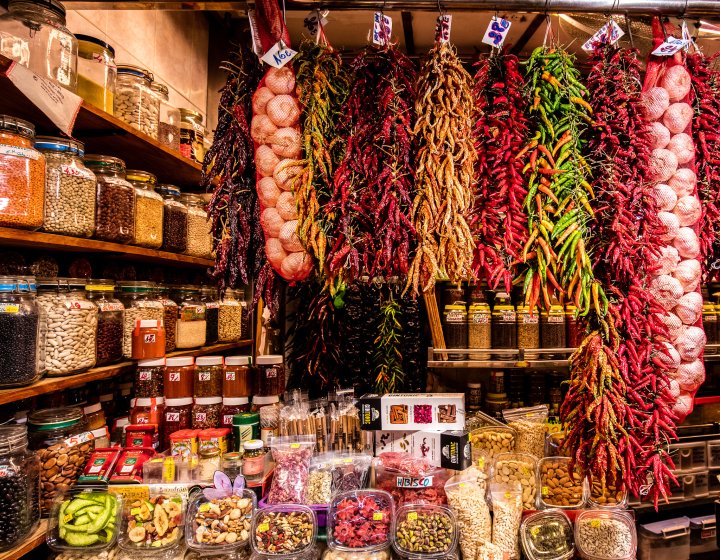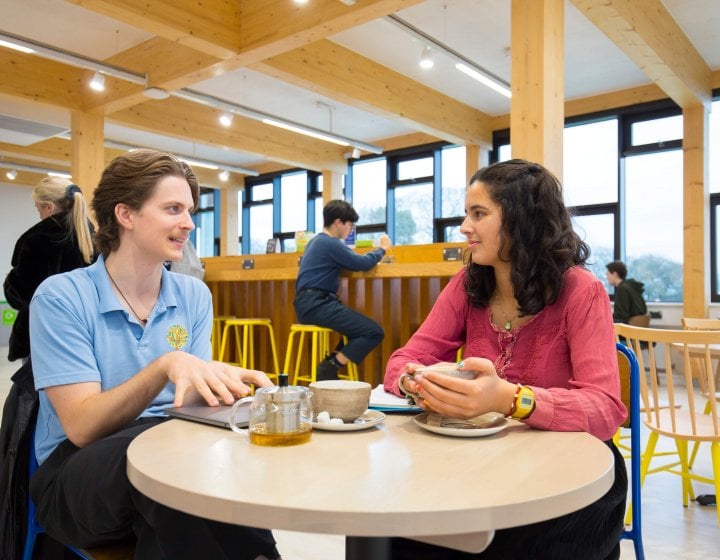Sustainability at Falmouth
We're acting now for the future of our planet and our people.
In 2019 Falmouth University declared a climate and ecological emergency – but there’s a big difference between declaring an emergency and addressing it.
See the steps that we’re taking to combat our carbon footprint and revolutionise sustainability in Higher Education by exploring our key themes, and sustainability report.
What we're doing
From carbon reduction to teaching and culture change, see how we're implementing our sustainability strategy.
As an anchor institution in Cornwall and a major employer for the county, we have a responsibility for the environment and how our activities impact the wider community. We also have the ability to influence a wide network of people.
Our approach
To make sure we're improving sustainability across all our activities, we’ve split our commitment and supporting strategic action plan into three key themes: Learning & Teaching, Research & Knowledge Exchange, and Physical Estate & Operations. For more information about each theme, click through to our Environmental Sustainability Commitment and the supporting documents and pages below. This work is supported by a dedicated team of professional staff who you can view below.
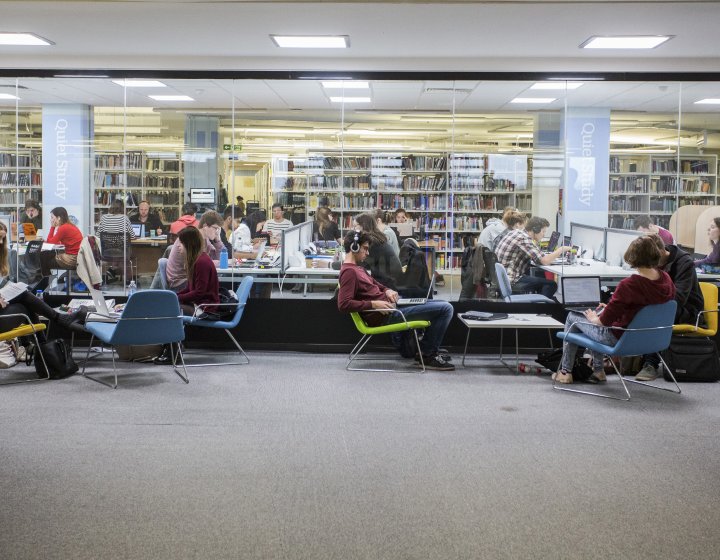
Learning & Teaching
Empowering our students with knowledge and skills to make a positive impact, through applying creati...
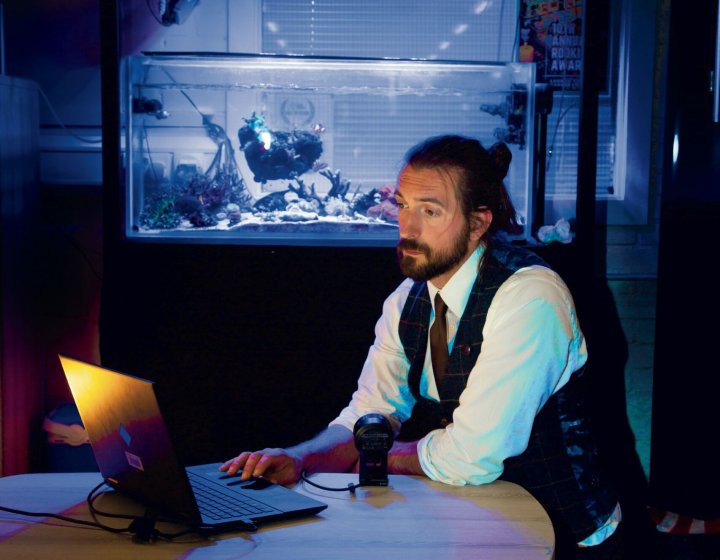
Sustainability | Research & Knowledge Exchange
We are committed to upholding sustainable research practices, undertaking sustainability-related res...
Physical Estate & Operations
Streamlining our operations and enhancing our environment.
Download our Key Sustainability Documents
-
Environmental sustainability SMART Targets 2025 (319.57 KB)
-
Environmental Sustainability Policy (165.18 KB)
-
Environmental Sustainability Action Plan, Metrics and Targets (266.29 KB)
-
Environmental Sustainability Commitment (195.81 KB)
-
Environmental Sustainability Steering Group Terms of Reference April 2025 (317 KB)
Our impact
Read our annual Sustainability Reports
Download our past Sustainability Reports
Our community & getting involved
With sustainable thinking embedded in everything we do, it's no wonder our people are making incredible strides towards a greener future.
Whether it's our researcher community seeking innovative solutions to the climate crisis, our alumni making impactful changes in industry or our staff changing the way we work, teach and use our campuses, you can read the latest and find how you can get involved, below.
A Sustainable Start
Is tasty!
Looking for ‘dinspiration’? Download our ‘Comforting Chilli’ recipe card - created by students, it's an easy, low-cost, sustainable meal to make in your first week and beyond!
Is free!
Meet likeminded people at a Green Society, the Students’ Union has plenty of societies focused on sustainability challenges and solutions.
Or take some time for yourself in nature, track down our biodiversity signs on Penryn Campus, discover the subtropical plants on Falmouth Campus, or embark on a coastal walk in Falmouth itself.
For more ideas…
To help you know where to start with sustainability, tick off the simple actions with big impact in our 'Sustainability Checklist'.
More opportunities & resources
Whether you're a student or a member of staff, there are loads of ways to get involved with our sustainability mission.
Students
From finding small ways to cut your carbon footprint to joining an eco-minded society, or sharing your ideas for a project or event, find out how you can get involved. We're all part of the solution.
Staff
If you’re a staff member, head to the Staff Portal to discover sustainability resources, recent highlights and advice on how you can work with us to embed sustainability across the three themes.
Connect with our Sustainability team
Our Sustainability team is steering the course for our ambitious sustainability aims.
Since 2019, our team has been working to embed systemic change within the University; from supporting our community to make environmentally-conscious lifestyle choices, to guiding our pedagogic approach, to making the most of our living, breathing campus environments.
Our strategic leads for Environmental Sustainability:
- Theme 1: Learning & Teaching: Professor Russell Crawford, Pro Vice-Chancellor, Academic Services
- Theme 2: Research & Knowledge Exchange: Professor David Prior, Pro Vice-Chancellor, Research & Knowledge Exchange
- Theme 3: Physical Estates & Operations: Simon Foster, Executive Directors of Estates, Operations & Planning
Falmouth Exeter Plus (FX Plus), our on-campus service delivery partner, is leading our work to make day-to-day campus operations more sustainable. Check out FX Plus' sustainability webpages for more detail on areas of work, initiatives, and progress. Leading this team is Oliver Milliner, CEnv MIEnvSc CMgr MCMI BSc(Hons), Head of Sustainability at FXPlus.
